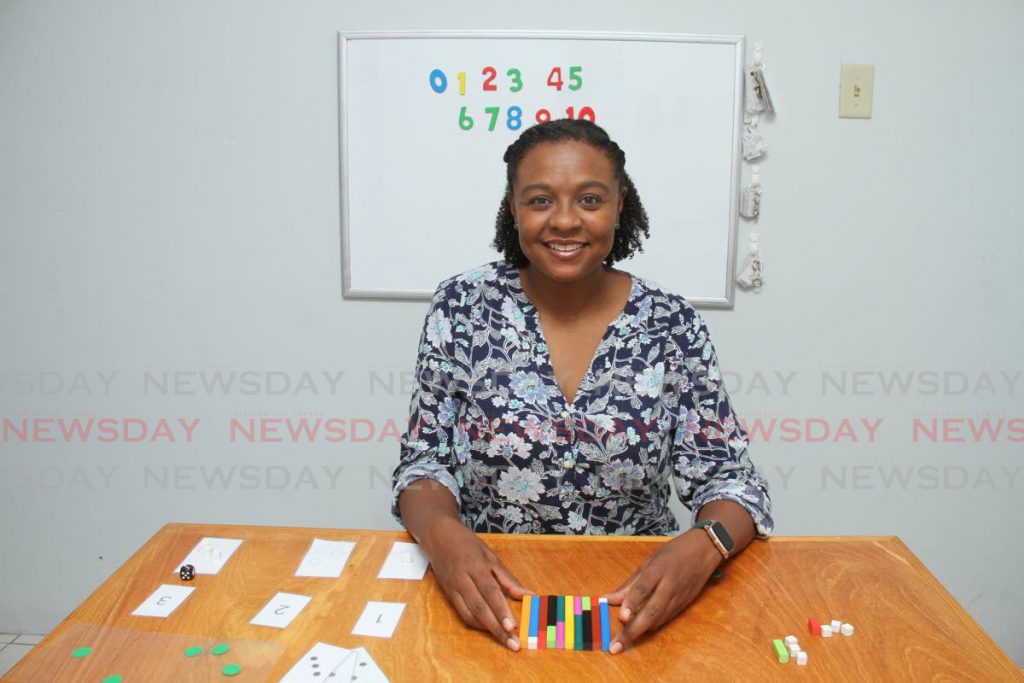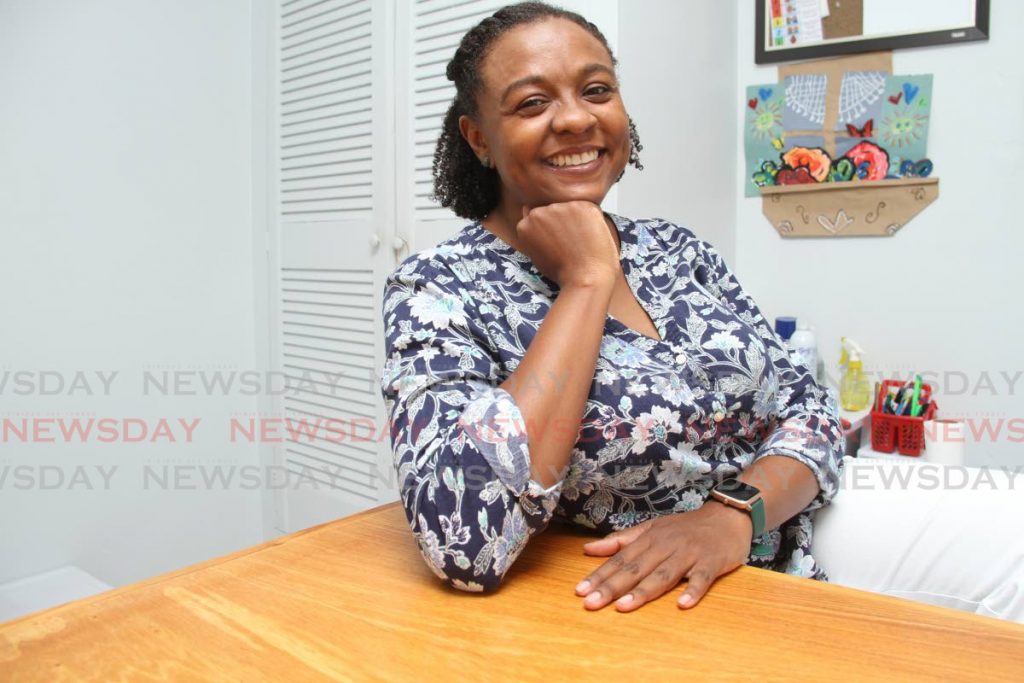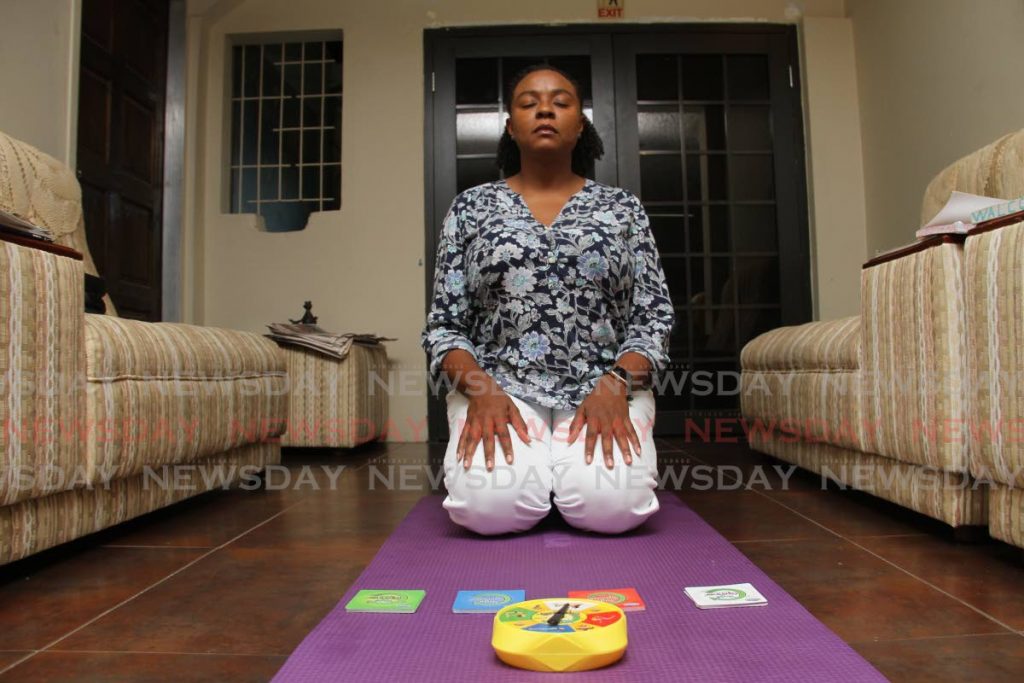Educational therapist Toni Blackett-Felix helps special needs children to learn

When Toni Blackett-Felix first taught in a government school and worked with children who had learning challenges, she never envisioned where her career in education would take her. Always eager to address the educational needs of her students, she thought many of the issues she faced might be because she was a new teacher.
But something didn’t feel quite right.
After finishing her bachelor’s degree in behavioural sciences and moving to England with Frederick Felix, her late husband, a cognitive behavioural therapist, she considered changing careers.
Cognition is defined as “the mental action or process of acquiring knowledge and understanding through thought, experience, and the senses.”
“I was frustrated with teaching and didn’t think I wanted to do it again.”
But she found her background in teaching provided more job opportunities for teaching special needs children in England. There, she taught students with motor, cognitive and developmental issues like autism and cerebral palsy.
When Blackett-Felix returned to Trinidad with her family, she plunged back into working with special needs children at schools like the Life Centre and Eshe’s.
“I began to realise I needed to change to understand these children better. I wanted to work on skill development. I had a unique skill set and a lot of experience after returning from England."

By 2013, Blackett-Felix had transitioned out of the classrooms to work one on one with students in her private practice, which she named Metanoia Educational Therapy, in Tacarigua. “Most of my children with social needs challenges had academic challenges. I did courses in the teaching of reading for persons with language learning difficulties at the Dyslexia Association and I received a postgraduate diploma in education, globalisation and inclusion with the University of Sheffield. I didn’t have a title for what I did. I didn’t know about anything called educational therapy.”
Educational therapy is the clinical application of research-based cognitive intervention. It combines social, psychological and academic disciplines to address students’ learning needs.
Using psychometric and standardised academic assessments, an educational therapist produces data to understand the learning challenges of a client.
Educational therapy targets issues in reading, writing, maths, spelling, study skills and critical thinking skills along with non-academic areas – learning strategies, problem solving, organisation, attention, self-esteem, self-awareness, self-advocacy and motivation.
It deals with executive skills, which is having the ability to meet challenges and accomplish goals that we all face in life without procrastinating or giving up.
Educational therapists help students to develop higher order thinking skills that allow planning and organising thoughts and behaviour and time manage skills to accomplish big and small tasks. It examines how students use working memory while performing a task, metacognition, (understanding the way one thinks) social skills and behaviours.
“Basically, it is understanding how people think and process information,” said Blackett-Felix. “It’s not just to recognise you have thoughts, but to understand how did you come about them.
“Some students need to learn about emotional control. They have to self-regulate so they are not easily angered or distracted and learn how to focus and continue on a task despite fatigue, boredom or difficulty. Educational therapy can help to achieve all of those skills.”
It’s also about being able to start tasks, work through procrastination, and being a flexible thinker. Students have to be able to adapt when an obstacle or new information comes in their way.

“We work on goal-directed persistence so students learn to set long term goals or follow through to complete their goals.”
These are skills that all students need to succeed.
Blackett-Felix belongs to the US-based Association of Educational Therapists, which defines and sets standards for the professional practice of educational therapy.
Educational therapists can help anyone to become more efficient learners. There’s no curriculum an education therapist uses. They teach skills and use evidence-based approaches to improve the capacity for learning.
“In TT, we have a strong culture in tutoring, but not every learning challenge can be dealt with by tutoring,” said Blackett-Felix.
“There’s a lot of great teachers in our classrooms, but they don’t have the expertise to do educational therapy nor should they be required to have it. My job is to support teachers. Sometimes parents and teachers don’t know what a learning challenge looks like.”
She said that children are often blamed for not listening, not taking notes or misbehaving in class. “That is a problem. Children don’t work to fail. When you have a behaviour that persistently inhibits learning that is a difficulty that may need to be addressed discretely. It could be something psychological like losing a parent.
She said there is a difference between disability and need.
“You don’t have to have a disability to have a need for intervention. You can have deficits in some areas and never meet a diagnostic criteria. That doesn’t mean you don’t have a need for therapeutic intervention.”
As part of case management she is required to work with other professionals including clinical psychologists, paediatricians, occupational therapists, speech therapists, neurologists, oncologists and anyone else involved in patients’ cases.
Blackett-Felix said educational therapists around the world have been meeting virtually to discuss strategies for dealing with how lockdowns and virtual learning affected students.
“We look at the slow-motion trauma of the pandemic. In most cases, trauma is quick and decisive. In long-term abuse, for instance, you can pinpoint the direction of the abuse, but this situation is not so clear. There is no definitive personal situation to blame in a pandemic. The uncertainty creates anxiety. We don’t know what the effects are going to be. Social skills challenges will likely emerge. There is going to be some lost learning and lost opportunity maybe in terms of honing some social skills.”

But Blackett-Felix is hopeful proper intervention can get children back on track.
“I think with some patience and recognising the resilience of children will help, but I think teachers will have to do a lot of observations and documenting behaviour to see any patterns coming up.”
She believes the real challenges will be in mental health and some executive skills that would not have been exercised as much in-home learning.
"Some children’s organisational skills might have appeared better in home-based learning because they are sitting in one place with their books around them. What will happen now when they have to move from classroom to classroom, packing and unpacking books remains to be seen.”
Blackett-Felix is believed to be the only registered educational therapist in Trinidad and Tobago right now. They are rare throughout the Caribbean, but Puerto Rico has some registered members.
As children head back to school, Blackett-Felix hopes that students will get the assistance they need to settle in.
“I’m there to help make the teachers jobs easier by working with teachers,” she said.
She hopes that more people will consider becoming educational therapists.
“There are many requirements and courses that need to be taken, but I really believe in this profession. It deals with the whole child, psychologically, socially and academically,” said Blackett-Felix.
In the end, it is the multi-disciplinary approach; the strong international community support and collaboration that make educational therapy an important learning and advocacy tool – especially in this pandemic that turned education upside down.

Comments
"Educational therapist Toni Blackett-Felix helps special needs children to learn"